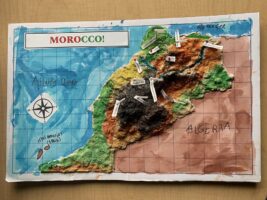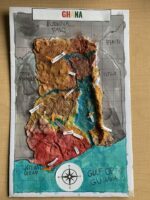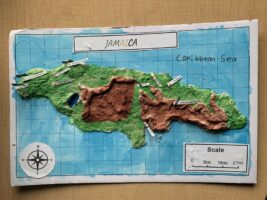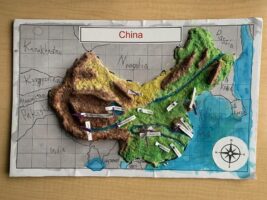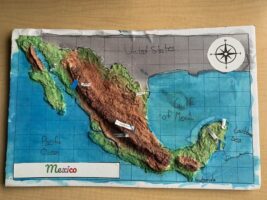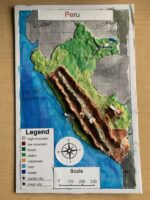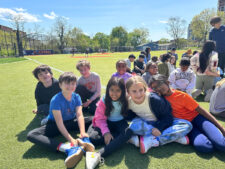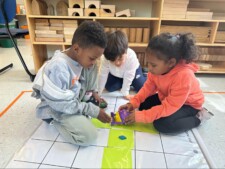In 4th Grade at Fieldston Lower, students examine geography in a unique, relevant, and engaging way. The curriculum unfolds in three distinct phases: physical geography, human geography and migration, and activism and community engagement. Acting as a thread weaving through these units is a meticulously crafted project — The Country Study — designed to ignite students’ curiosity and foster their critical thinking skills.
This comprehensive study not only promotes student choice but also delves deep into contemporary human movement trends, offering a multifaceted, experiential approach that epitomizes the relevance of our School’s educational offerings to the ever-evolving needs of today’s learners. Each year, the 4th Grade teachers select the top five countries from each continent with the largest grouping of immigrants to New York City. This structure seeks to create an experience that will allow students to learn more about populations of people that they will likely interact with as residents of the greater New York City area.
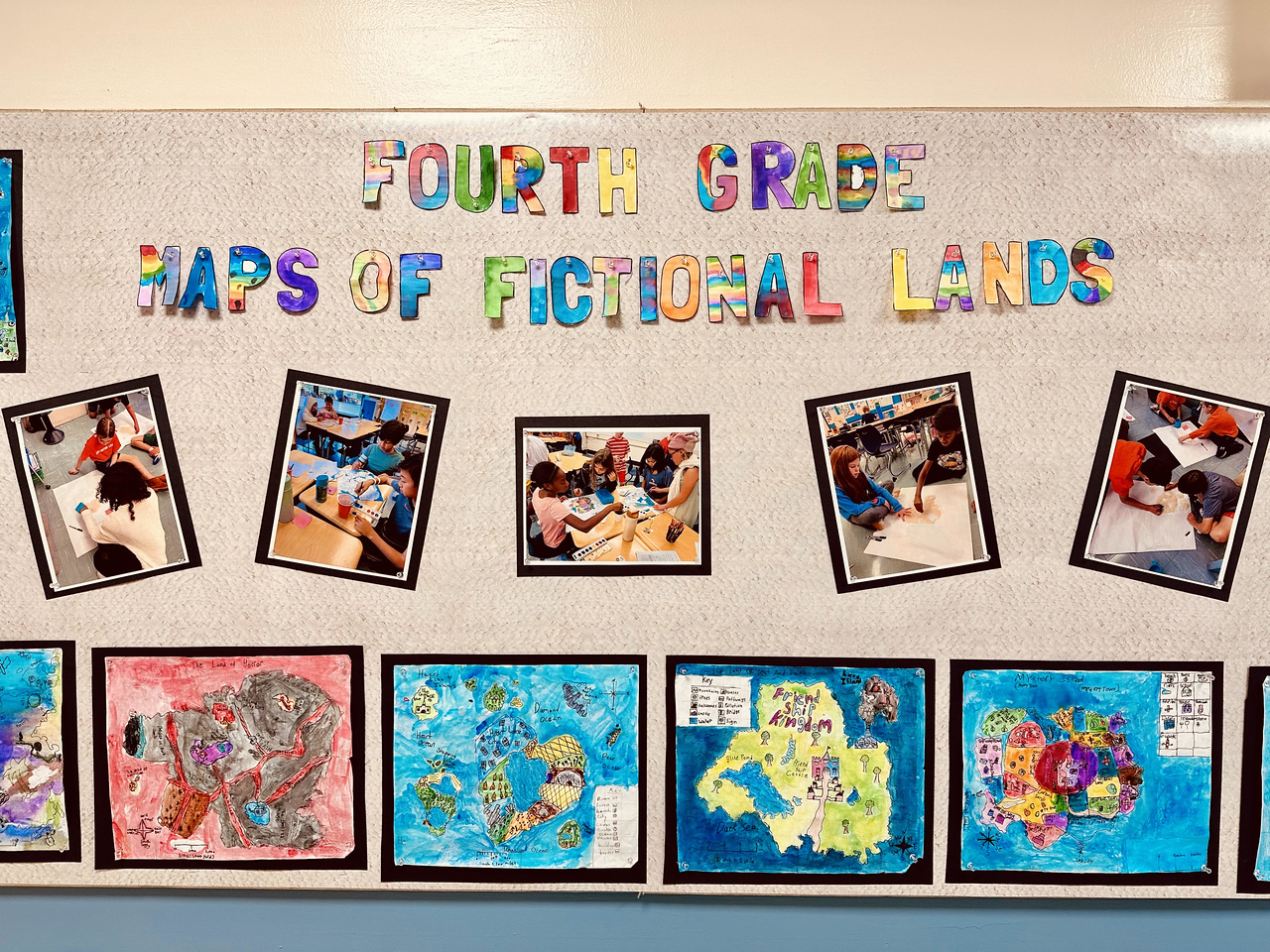
In the project’s initial phase, students learn about physical geography and important skills around reading maps — exploring their features, functions, and conventions. From fictional land projects to creating their own planning maps and digital representations using mathematical and writing skills, they navigate through the intricacies of map-making, culminating in the creation of stunning 3D maps crafted from salt dough and watercolors.
Transitioning seamlessly into the human geography segment, students study the major migration waves to the United States, examining a diverse range of movement stories through picture books. Through immersive studies of Ellis Island and Angel Island, and enriching visits to the Tenement Museum and the Museum of Chinese in America, students gain a deeper understanding of migration’s challenges and triumphs.
Steering clear of oversimplifications, the 4th Grade teachers provide students with a diversified understanding of migration, highlighting its complexities beyond stereotypes. Students grasp that migration is often driven by both push and pull factors: push factors compel individuals to leave their home countries due to issues like political instability or economic hardship, while pull factors attract them to new destinations with promises of better opportunities or family reunification. Through immersive activities such as the suitcase project, where students construct and “pack” their own suitcase with items that are important to them, they explore the emotional and practical aspects of migration, making connections to their own lives.
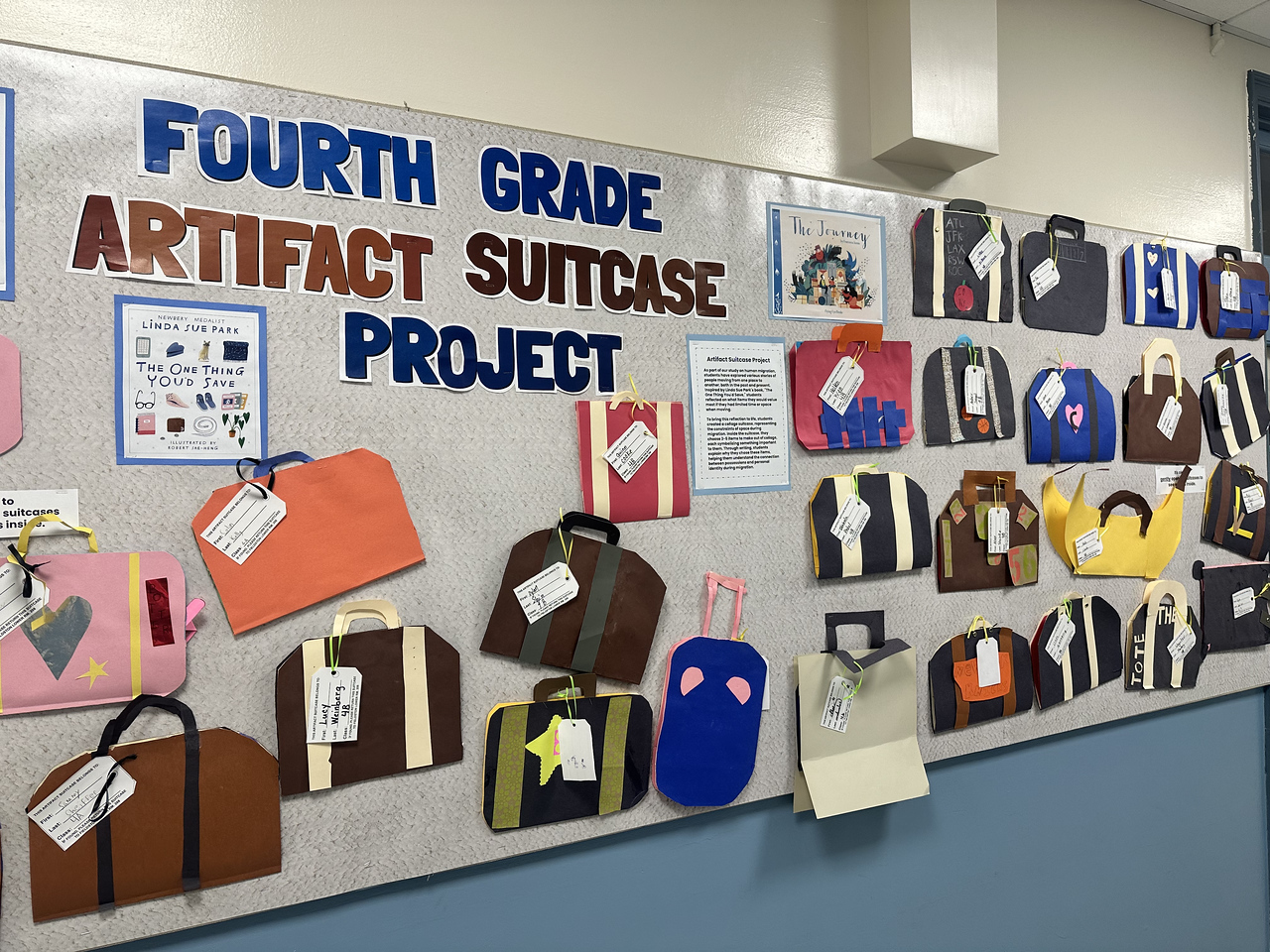
The curriculum emphasizes that despite challenges, migrants endeavor to establish new homes and communities in their adopted countries, adapting to unfamiliar surroundings while preserving aspects of their cultural heritage. Students begin to understand that for many immigrants to the United States, making an unfamiliar place home involves navigating language barriers, seeking employment, and building connections within the community, all of which contribute to the resilience and diversity of societies around the world.
Another key element of this curriculum is a profound exploration of data and its meaningful representation. When the 4th Grade teachers realized the lack of age-appropriate resources about certain demographic data, they went above and beyond to curate their own microsite, which is a rich digital repository of quick facts, flags, and currency, as well as demographic information including languages, major religions, and statistics such as literacy rates. Equipped with this important resource, students venture into the realm of data visualization, experimenting with various mediums to convey their findings artistically.
“As our students research, they encounter various types of data, such as population demographics. Asking students to create visual representations encourages a meaningful interpretation of that data,” explains Fieldston Lower Librarian Jessica Panek.
Throughout this enriching journey, students not only hone their academic skills but also cultivate empathy, resilience, and a sense of global citizenship. By exploring resistance, finding joy amidst adversity, and comprehensively studying migrant narratives through literature and primary sources, they gain a nuanced understanding of the human experience. Once students complete the project’s human migration portion, they will expand upon their knowledge by exploring community engagement and activism.
A testament to our teachers’ unwavering commitment to nurturing curiosity and fostering empathy, the Country Study empowers students to not only become thoughtful critical thinkers but active agents of change.
